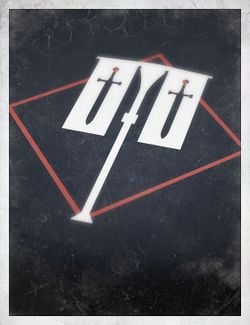Combined Arms: Difference between revisions
From Destinypedia, the Destiny wiki
m (→References: replaced: Category: Crucible → Category:Crucible gametypes) |
m (Text replacement - " " to " ") |
||
| Line 15: | Line 15: | ||
==References== | ==References== | ||
<references/> | <references/> | ||
[[Category:Crucible gametypes]] | [[Category:Crucible gametypes]] | ||
[[Category:Activities]] | [[Category:Activities]] | ||
Revision as of 13:12, November 7, 2019
This article has new content coming soon from Destiny 2 and may not be complete, confirmed, or correct. Please update it as soon as any relevant and accurate material is available. Editors must cite sources for all contributions to this article. Edits that do not follow this standard will be reverted without notice. For more information, see the Citation policy.
- "Honor is earned, not given. So earn it."
- — Lord Shaxx.
Combined Arms is a Crucible match type.
Overview
Combined Arms is a 6v6 Crucible playlist mode where teams have access to vehicles. Players battle on much larger maps than normal and are able to use Pikes, Heavy Pikes, Interceptors, Heavy Turrets and their own Sparrows in battle. Special medals are awarded for killing enemies with vehicles. Teams have to take control of three flags scattered across a map, and hold them against enemy attack. Points are scored for holding a flag zone, and scoring kills.
Strategy
Map navigation is important, and use of vehicles to move is a significant advantage. Two points minimum are required in order for a team to have a strong point flow to stay in the lead. Novice players and teams will assume that holding one point and out killing the other team will suffice, but this is rarely if ever the case. Trying to hold three points if often considered a poor idea, as it leads to the team being stretched thin, and leaves all three points open to attack. Heavy Ammo spawns in many different points across the large map, so teams can secure more than one crate each with little difficulty. Heavy Ammo is very strong against turrets and vehicles.
